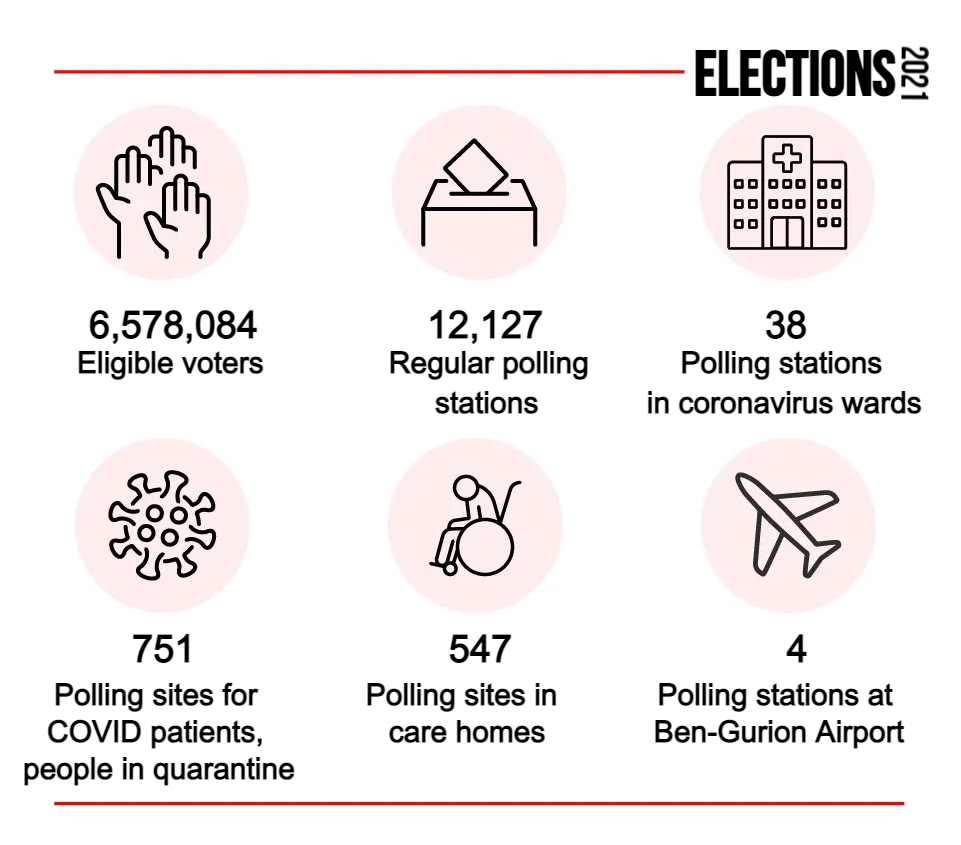On Tuesday, Israel's 6,578,084 eligible voters will cast their ballots for the fourth time in two years at 13,685 polling stations around the country.
Most polling stations will open at 7am and close at 10pm. In small communities, hospitals and prisons, polling hours will be 8am to 10pm.
Polling stations that will be dedicated for use by coronavirus patients will open at 8am and close at 7pm, although voters who are in quarantine will be able to cast their ballots from 7 am to 10 pm.
Votes cast past closing time will still be counted provided those voters arrived at the station beforehand.
Election notices were sent to voters' homes in recent weeks and all those wishing to cast a ballot were asked to check changes in their polling stations' locations due to special arrangements made to accommodate those suffering from COVID-19 or under quarantine.
5 View gallery
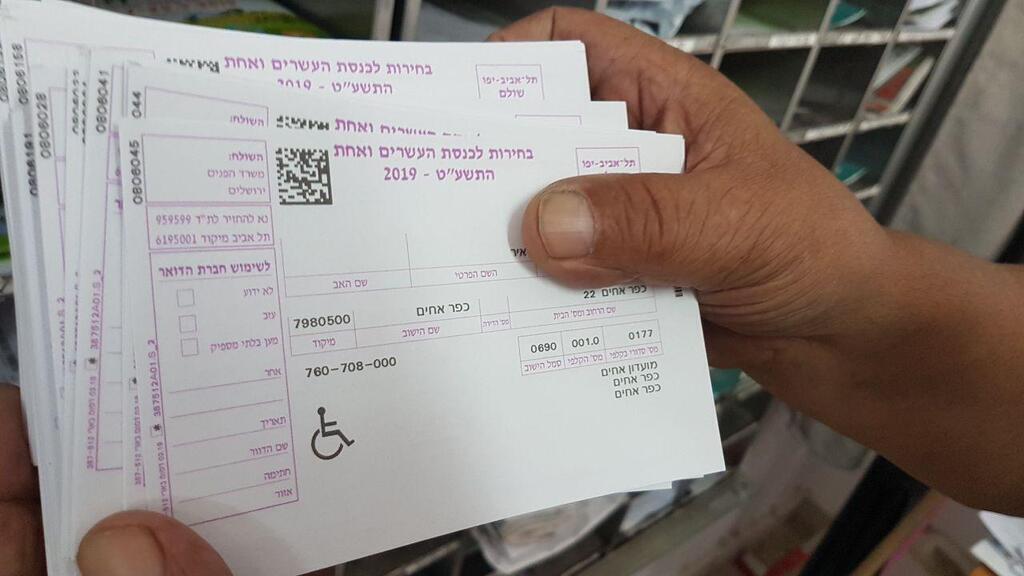

Election notices were sent to eligible voters telling them where they can vote in the March 23 elections
(Photo: Assaf Kamar)
Israelis who did not receive a notice were directed to check their polling station at the Interior Ministry's polls location page (Hebrew) or call 1-800-222-290.
Each polling station will be equipped with hand sanitizer and voters will be asked to use it before entering. They will also be asked to provide an identity card or a valid driver's license and be told to briefly remove their mask so that their identity can be verified by election officials.
After the identity process is completed, voters will be invited to step into the booth, place their chosen ballot slip into one of the blue envelopes provided and place the envelope into the ballot box.
There will be 409 polling stations for the use exclusive use of COVID-19 patients and 342 stations for people in quarantine because they came into contact with a confirmed virus patient or have developed symptoms of the disease.
5 View gallery
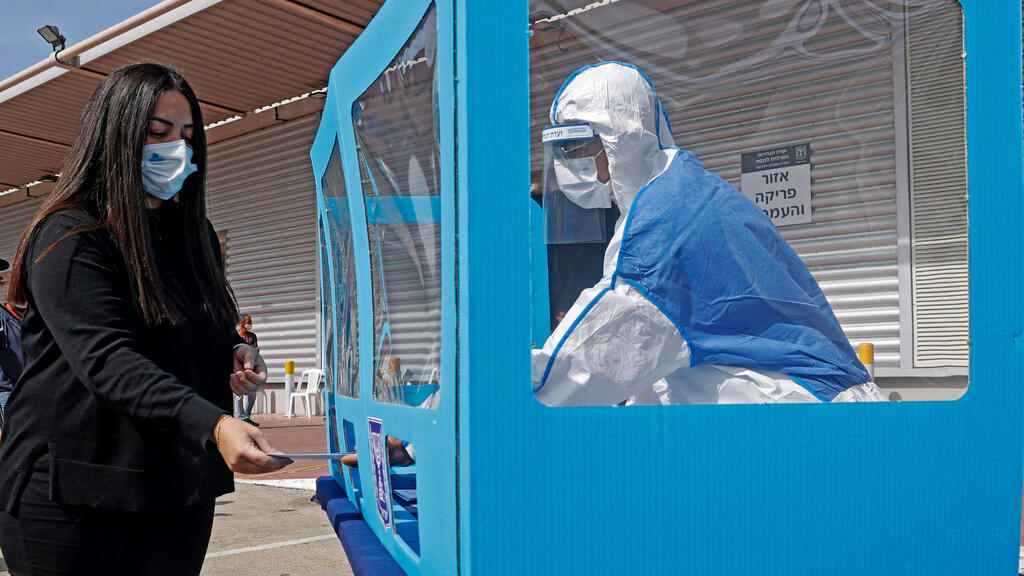

A polling station for coronavirus patients for use in the March 23 elections
(Photo: AFP)
Those voters will not be able to use public transportation to get to their polling stations and will be required to arrive in a private vehicle. Some polling stations have actually been constructed as drive-through facilities.
People in quarantine who do not own a vehicle can book free transportation to and from the polling station via the Central Elections Committee website (Hebrew) or by calling 077-6017137.
Special polling stations will also be available to those residing in women's shelters, retirement homes, prisons and other care facilities.
Israelis arriving at Ben-Gurion International Airport on Election Day will be able to vote at one of four polling stations there. A separate voting station will be placed before passport control for arrivals who have not yet received two doses of the coronavirus vaccine.
Eligible voters staying at coronavirus quarantine hotels will be able to vote at ballot stations on site. Hospitals will also have polling stations, including inside the coronavirus wards.
5 View gallery
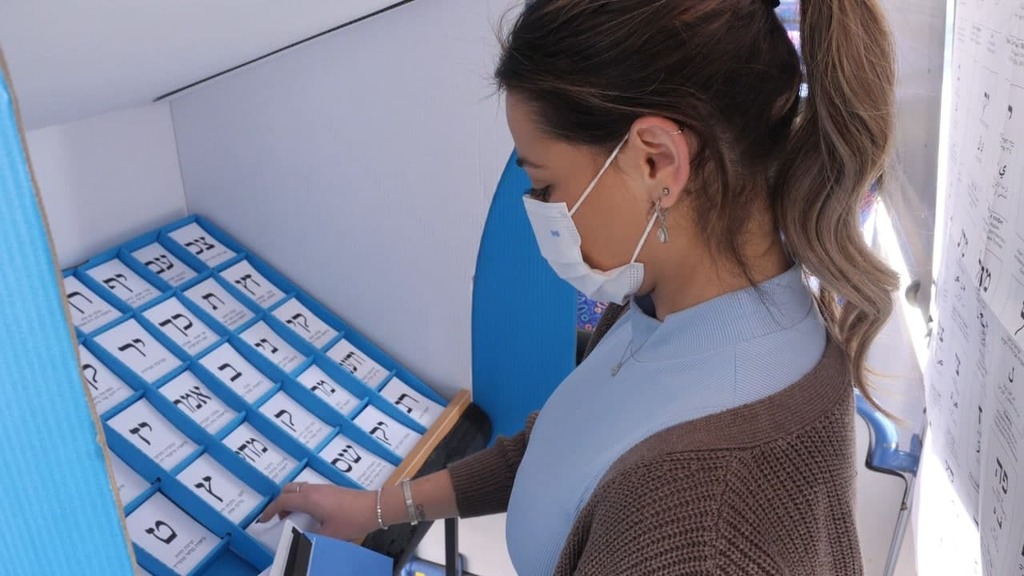

A Central Elections Committee worker prepares a polling station for use by coronavirus patients or voters in quarantine
(Photo: Haim Levi)
Israelis who on Election Day feel they may have contracted COVID-19 but have not yet been tested or quarantined must contact the Health Ministry to be directed to polling stations for coronavirus patients.
All special polling stations (for COVID patients, people in quarantine or in hospital) will place ballots into so-called double envelopes, which have the voting slips sealed inside two envelopes to ensure privacy.
These double envelopes, which are also used by officials stationed abroad, serving members of the armed forces and people in prison, will be opened only after all regular ballots have been counted.
The Central Elections Committee will assign 15,000 inspectors to the polling stations across the country and cameras will be positioned at ballot counts in order to spot any voter fraud.
Officials will begin to count the votes as soon as polling stations are closed.
5 View gallery
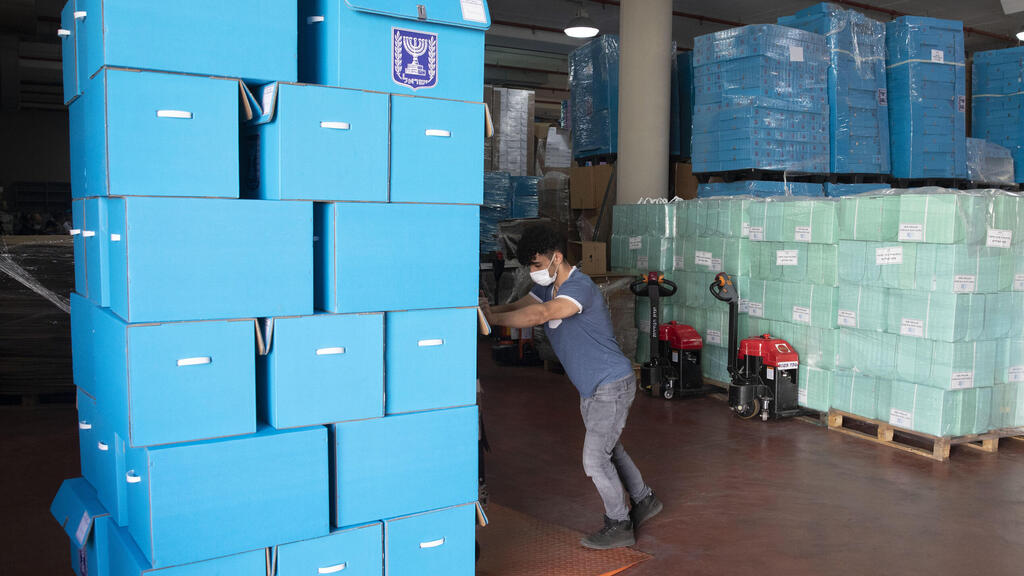

Election workers at a warehouse near Tel Aviv prepare ballot boxes for use in the March 23 vote
(Photo: AP)
After 10pm, when the last polling stations have closed, the Central Elections Committee will begin collecting counted ballots from stations across the country.
The major television stations will also release their exit polls at 10pm.
The final election results will be announced no earlier than Wednesday morning and no later than Friday afternoon.
The results will be handed to President Reuven Rivlin on March 31 and may be contested no later than April 14, 2021.


